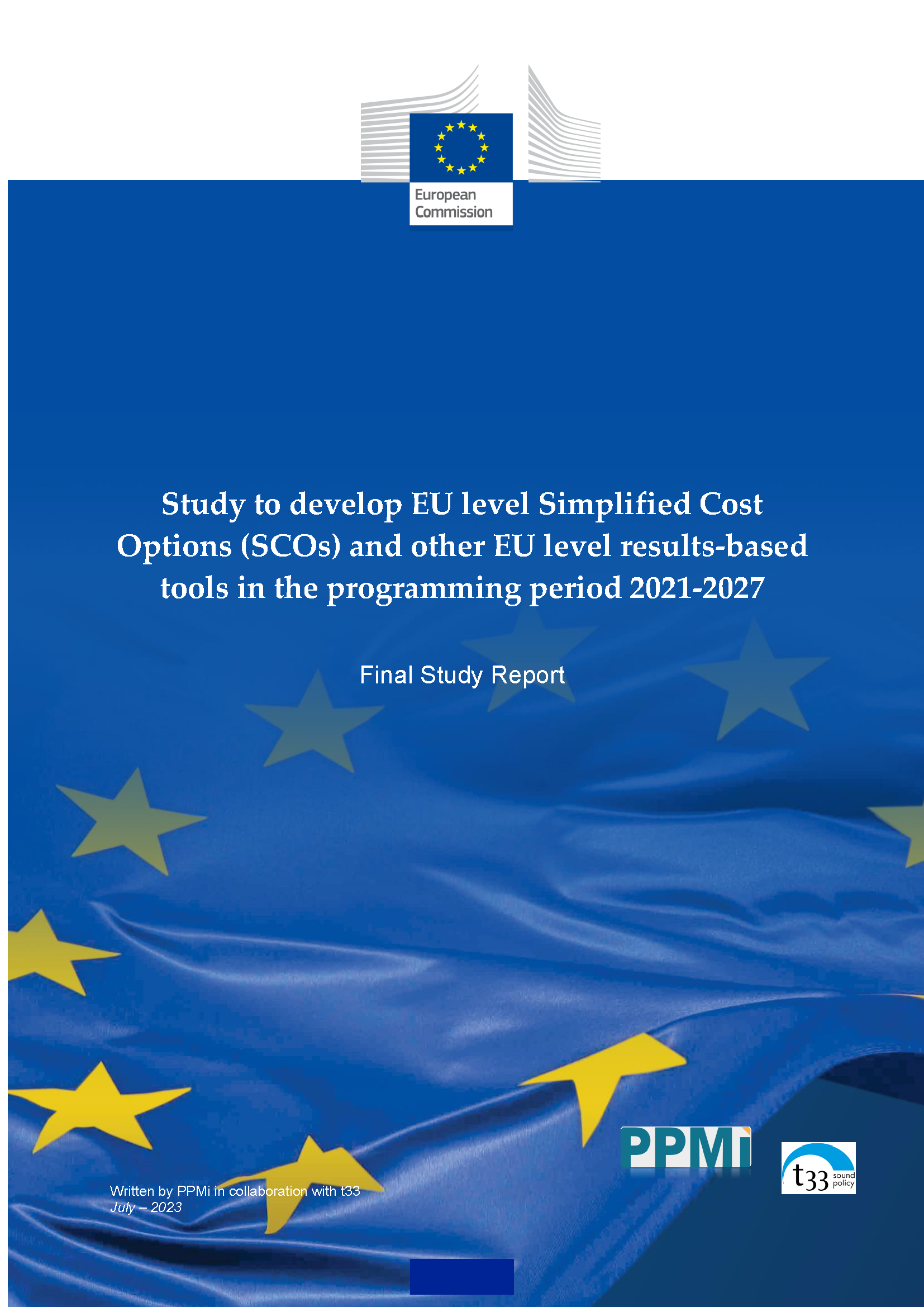
This study was launched with a purpose of developing EU-level Simplified Cost Options (SCOs) and other EU-level results-based tools in multiple areas supported by the European Regional Development Fund (ERDF) and Cohesion Fund (CF) in the programming period 2021-2027. The methodology employed in this study is aligned with the provisions of Article 94 of the Common Provisions Regulation1. More specifically, it builds on the analysis of verified historical data collected at national and/or regional levels and statistical inference where historical data are insufficient or unavailable. The study elaborates on potential EU-level SCOs in the following areas relevant to ERDF/CF:• Energy Efficiency and Renewable Energy (Area 1), focusing on small or medium enterprises (SMEs) (sub-area 1A), housing sector (sub-area 1B.1) and non-residential (public) sector (sub-area 1B.2);• Research and Innovation activities (Area 2), in particular knowledge / technology transfer activities of SMEs (sub-area 2A), innovation vouchers for SMEs for R&D implementation (sub-area 2B) and Research Development & Innovation research projects (sub-area 2C).• SME Growth & Competitiveness (Area 3), in particular networking activities of SMEs (sub-area 3A) and consultancy / advisory services to SMEs for digital & green transformation (sub-area 3B).Notably, sub-area 1B was initially divided into two separate sub-areas – housing and non-residential public buildings sectors. However, as operations in both sectors share an identical set of activities, it has been decided to merge the two to attain a more robust sample of historical data. The underlying process of historical data collection and analysis consisted of the following steps:1. Undertaking preparatory activities, such as exploratory research on the relevant measures; developing structured data collection forms; organising stakeholder consultations to test data collection forms; selecting a representative sample of Operational Programmes (OP) to source data from.2. Collecting historical data on relevant interventions at national and regional levels.3. Collecting (proxy) data from alternative sources that could be used to triangulate, complement or replace the historical data where it is lacking.4. Interpreting, cleaning and analysing the collected historical data to identify any gaps, discrepancies and/or outlier cases and re-engaging the national experts in resolving the data shortcomings.5. Applying and elaborating SCO methodologies for assessing the feasibility of EU-level SCO development, including methods and techniques for determining the SCO rates / amounts for the Member States (MS) not covered / insufficiently covered by historical data.6. Defining the audit trail for the most promising (data-wise) EU-level SCO in each considered sub-area.7. Consulting with stakeholders about the proposed EU-level SCOs and their audit trail within dedicated focus group discussions, also during presentations to members of the network of ERDF/CF SCO practitioners and meetings with other European Commission stakeholders.
